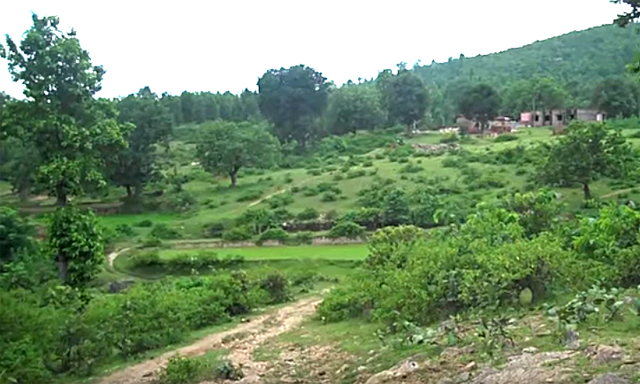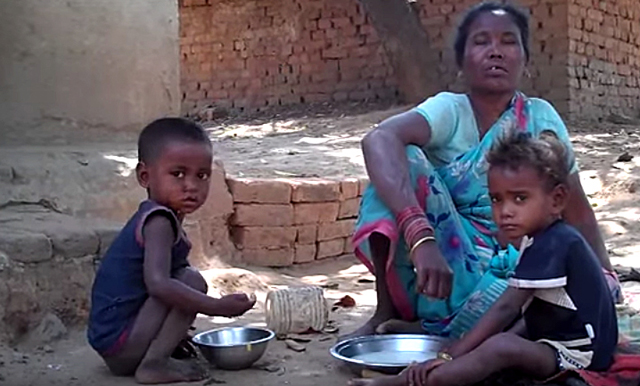A Birhor man from Nawadih village in the Mandu Block, Ramgarh District of India’s Jharkhand state, died of starvation late on Tuesday, October 30, according to a news report last week. The 40-year-old Rajendrra Birhor left a wife, Shanti Devi, and six children. He was the sole wage earner for the family.

Shanti Devi said that about a month ago her husband was diagnosed with jaundice at the Rajendra Institute of Medical Sciences in the city of Ranchi. People at the hospital prescribed medicines and sent him home. The family could not afford to purchase the drugs and, for the last few days of his life, they had no money to buy food.
Shortly after he died, a couple Mandu officials, the Block Officer and the Circle Officer, visited the home of the deceased and gave his widow Rs.10,000 (U.S.$136) and a quintal of food grains. Shanti told the reporter that the family had neither a ration card nor an Aadhaar card. They were unable to secure the foods that the government subsidizes for the poor.
The Block Officer, Sri Manoj Kumar Gupta, was defensive about the failure of the welfare schemes in his block. He acknowledged that the Birhor family had not been given a ration card, but he stated that, nonetheless, “Rajendra died of prolonged illness.” He added, however, that his government was investigating why the so-called “primitive tribal group” was being denied their ration cards and thus the welfare benefits that are authorized by Indian law.

A brief journal article published in May 2017 described the extreme poverty of a different, but comparable Birhor village, Duru Kasmar in Mandu block. The authors of that study indicated that, of the 55 Birhor families in the village, three-quarters of them still try to subsist on the income from their traditional work, such as rope-making and the sale of forest products that they had gathered. Only 12 of the 55 families received funds from government welfare. The news story last week about the death in Nawadih did not include any comparable figures about that village.